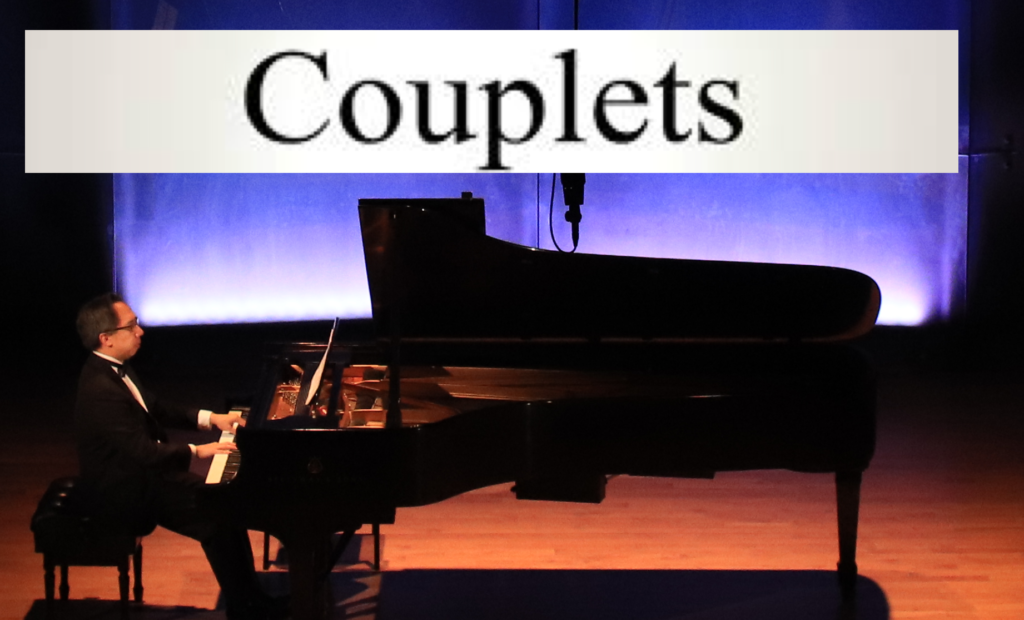
I’ve always had the goal of bringing 10 new piano compositions to life that would help to elucidate the state of modern pianism. My passion to expand the piano repertoire has to led me to premiere numerous pieces from composers around the world, and to embark on a multi-year commitment to commission, premiere and record new works. Several years ago, Leon Kirchner’s last piano sonata, ‘The Forbidden’, was the beginning of this sequence.
When the planning of the Open Source Music Festival started, my vision was to bring a new musical work into the world that epitomizes exploration, collaboration, sharing, and ultimately, the reimagination of music. I chose four pairs of married composer couples – Augusta Read Thomas & Bernard Rands, Evan Ziporyn & Christine Southworth, Anthony Cheung & Wang Lu, Julia Wolfe & Michael Gordon – to create a new work, together, that takes it’s inspiration from another influence. The result is a remarkable set of new piano compositions inspired by the concepts underlying open source, and that we have named Couplets.
Don’t Want To Wait: Christine Southworth, Evan Ziporyn. Christine Southworth is a composer and video artist who creates art born of sonic and visual ideas. She’s inspired by intersections of technology and art, nature and machines, and music from cultures around the world. Evan Ziporyn is a composer that draws from classical music, avant-garde, world music traditions, and jazz. He is also a Distinguished Professor of Music at MIT and known for his solo performances on clarinet and bass clarinet.
Julia Wolfe and Michael Gordon created Hand in Hand together, melding their styles while remaining unique and distinctive in this new work. Julia Wolfe is a 2016 MacArthur Fellow and winner of the 2015 Pulitzer Prize in music. She draws inspiration from folk, classical, and rock genres, bringing a modern sensibility to each while simultaneously tearing down the walls between them. Michael Gordon’s music merges subtle rhythmic invention with incredible power embodying, in the words of The New Yorker’s Alex Ross, “the fury of punk rock, the nervous brilliance of free jazz and the intransigence of classical modernism.”
Recombinant: Wang Lu, Anthony Cheung. This composition combines existing elements in a new combination and draws it’s influences from Chopin. Composer and pianist Wang Lu was born in Xi’an, the ancient capital of China. Being brought up in a musical family with strong Chinese opera and folk music traditions, her works reflect a very natural identification with those influences, through the prism of contemporary instrumental techniques and new sonic possibilities. A Guggenheim Fellow, she has created works for a variety of Western and Chinese ensembles and orchestras that have been performed internationally. Composer and pianist Anthony Cheung has received awards from ASCAP, the American Academy of Arts and Letters and a Guggenheim Fellowship. His output ranges from solo to orchestral works, commissioned by leading orchestras and ensembles throughout the world.
Two Thoughts About the Piano: Augusta Read Thomas, Bernard Rands. Actually two separate works intended to be performed without pause, Impromptu #3 and AXIS are based on the Elliott Carter composition, Catenaires. Grammy winner Augusta Read Thomas has created an impressive body of works that embodies unbridled passion and fierce poetry.Her music is nuanced, majestic, elegant, capricious, lyrical, and colorful, and she’s secured a permanent place in the pantheon of American composers. With over a hundred published works and many recordings, Bernard Rands is established as a major figure in contemporary music. Inducted into the American Academy of Arts and Letters in 2004, he has been awarded a Grammy, the Pulitzer Prize in Music, making a wonderful and dedicated contribution to the music of our time.